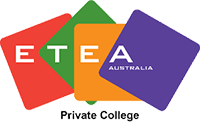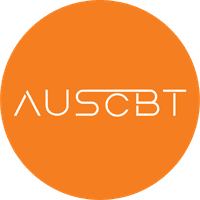
This role has a high level of AI exposure. While some human skills are required, many tasks could be automated or replaced by new technology.
Explore all careersA Tax Accountant manages tax obligations, prepares returns, provides advice, and requires strong numerical, organisational, and communication skills.
Get qualified to work as a Tax Accountant with a course recognised across Australia. Speak to a training provider to learn more.




















In Australia, a full time Tax Accountant generally earns $1,875 per week ($97,500 annual salary) before tax. This is a median figure for full-time employees and should be considered a guide only. As you gain more experience you can expect a potentially higher salary than people who are new to the industry.
 Courses.com.au Team
Courses.com.au Team
This area of accounting has grown very strongly in recent years. There are currently 11,000 Tax Accountants in Australia compared to 8,600 five years ago. Tax Accountants may find work across all regions of Australia.
Source: Australian Government Labour Market Insights
 Courses.com.au Team
Courses.com.au Team
If you’re thinking of starting a career as a Tax Accountant you could consider enrolling in an Advanced Diploma of Accounting. This qualification allows you to specialise in taxation accounting with subjects such as working with financial systems, preparing financial reports, auditing financial records and interpreting financial statistics.
 Courses.com.au Team
Courses.com.au Team
Browse occupations related to Tax Accountant



If you're looking to start a career in the finance sector, exploring the range of Tax Accountant courses in Melbourne is an excellent step. Melbourne is home to a diverse selection of training providers offering high-quality courses that cater to various skill levels, ensuring you find the right fit whether you're a complete beginner or looking to enhance your existing qualifications. With 11 courses available, aspiring tax accountants can benefit from both beginner and advanced training options tailored to their needs.
For those new to the field, there are three popular beginner courses that can set the foundation for a successful career in tax accounting. The Tax Law for Tax Agents Skill Set (Tax documentation) FNSSS00008 offers essential insights into tax documentation processes, while the Commercial Law for Tax Agents Skill Set FNSSS00005 will provide you with the knowledge of legal principles impacting taxation. Additionally, the Tax Law for Tax Agents Skill Set (Tax Plans) FNSSS00009 focuses on understanding tax planning strategies, making it a great choice for those eager to start their journey in tax accounting.
Experienced learners can further their education with advanced qualifications that include a range of specialised degrees and diplomas. For instance, you might consider the Bachelor of Commerce (Accounting) offered by La Trobe University, or the Bachelor of Business (Taxation) from Monash University. For those wishing to further enhance their expertise, the Graduate Certificate in Professional Accounting or the Advanced Diploma of Accounting FNS60222 from SMC may be perfect options.
In addition to universities, other esteemed training providers in Melbourne are also delivering Tax Accountant courses to help you advance in your career. Swinburne University of Technology is renowned for providing practical business education, including courses tailored to tax accounting. You will find that networking with fellow learners and professionals throughout your studies can be incredibly beneficial as you navigate the unique landscape of tax accounting.
As you explore the various Tax Accountant courses in Melbourne, take the time to assess your current skill set and career aspirations. By engaging with the offerings from reputable institutions like La Trobe University, Monash University, and Swinburne University, you're sure to find the right course to help you achieve your goals in the competitive world of taxation. For a complete list of available courses and more information, visit the Tax Accountant courses in Melbourne page on Courses.com.au.